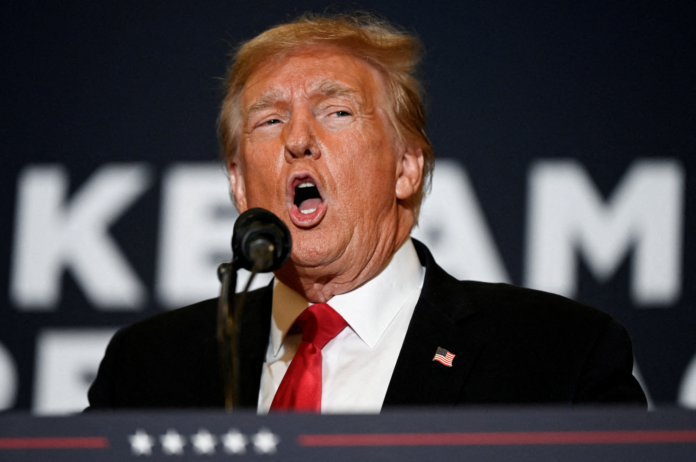Georgia judge made headlines by dismissing six charges in the high-profile Fulton County racketeering case against former President Donald Trump and his cohorts. This decision has stirred a mix of reactions, shedding light on the intricate dance of legal proceedings and the battle for accountability in the aftermath of the 2020 presidential election.
The charges, which stem from allegations of Trump and his allies attempting to unlawfully sway state election officials, represent just a fraction of the 41-count indictment. Yet, they include some of the most damning accusations—centering on Trump’s now-infamous phone call to Georgia Secretary of State Brad Raffensperger, where he implored, “So what are we going to do here, folks? I only need 11,000 votes. Fellas, I need 11,000 votes. Give me a break.”
Georgia Superior Court Judge Scott McAfee’s ruling to dismiss these charges was not an outright exoneration of the defendants’ actions but rather a critique of the prosecution’s specificity in the indictment. McAfee highlighted that while the prosecution provided ample evidence of Trump’s illicit attempts to meddle in the election, the charges failed to pinpoint the exact statutes or constitutional provisions violated.
This legal hiccup has opened a pathway for Fulton County District Attorney Fani Willis and her office to refine their approach, either by pursuing a new indictment with the necessary specificity or by appealing McAfee’s order. Despite this setback, the heart of the case—racketeering charges—remains intact, maintaining the pressure on Trump and his allies.
This development underscores the complexity of legal battles surrounding Trump, who is entangled in multiple criminal cases beyond Georgia, ranging from the retention of classified documents to efforts to overturn the 2020 election results. Each case presents its own set of challenges and delays, contributing to a tangled legal web that could potentially stretch beyond the 2024 presidential election.
The dismissal of these charges in Georgia might seem like a win for Trump on the surface, yet it’s crucial to recognize that it doesn’t signify an end to the legal scrutiny he faces. It’s a reminder of the nuanced and often painstaking process of seeking justice in cases of alleged political corruption and subversion.
For those committed to accountability and the protection of democratic norms, the situation is a clarion call for vigilance. It highlights the need for a legal system that is both precise and resilient in the face of attempts to undermine the integrity of elections. As the case proceeds, and as Willis weighs her options for moving forward, the eyes of the nation remain fixed on Georgia—not just for the fate of one man, but for the broader implications for democracy itself.
In an era where political tensions are high, and the lines between legal battles and electoral politics increasingly blur, the Fulton County case stands as a pivotal moment. It’s a test of the legal system’s ability to address allegations of election subversion and a reminder of the ongoing struggle to safeguard the principles that underpin American democracy.



